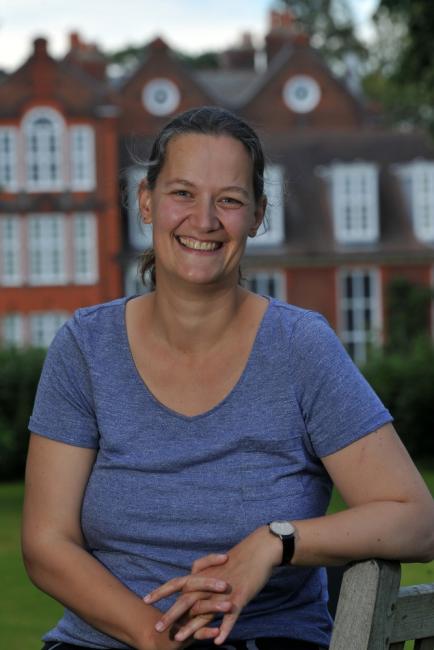Seminar on "Avalanches and dunes across scales"
Events | Mechanical Engineering
Seminar on "Avalanches and dunes across scales"
March 12, 2018 8:30 AM

Speaker
Dr Nathalie Vriend
Location
ESB 1001
Type
Seminar
Flowing granular materials arise everywhere around us, in industry from pharmaceutical processes to bulk good transport lines, and in nature from snow avalanches to devastating landslides. The main challenge of studying granular materials is the development of constitutive models, based on targeted experiments, valid from the micro-scale (collisions between individual particles), via the meso-scale (flow structures inside avalanches) to the macro-scale (dunes, heaps, chute flows). In this talk, we will be exploring two granular phenomena encountered in our daily lives; avalanches and dunes, and highlight measurements and observations across these scales.
We are creating laboratory avalanches to investigate the failure and avalanching of individual granular avalanches on a 2m-long erodible pile of sand in a channel and reveal previously unknown dynamical mode-switching behavior. Although the macroscopic behavior of avalanches can be observed here, the microscopic interactions during collisions remain a mystery. To reveal stress distributions in 2D granular avalanches, we recently fabricated bespoke, superior-quality birefringent photoelastic particles. This gives us for the first time access to the full velocity, density and stress fields inside of a dynamic avalanche, and allows us to experimentally validate granular rheological models.
A different component of my work is based on structure and migration of underwater and desert sand dunes. In this seminar, I will highlight a novel laboratory set-up in which we create aqueous dunes in a periodic domain. I present measurements on both the early (linear) regime of ripple formation and the later (non-linear) regime in which ripples coarsen to dunes, and compare this to numerical simulations in a cellular automaton model.
BIOSKETCH | Dr Vriend’s research focuses on the geomechanics of granular materials, with a special interest in geophysical phenomena occurring in nature and engineering problems in industry. Granular materials span a range of scales, from the micro-scale in grain phenomena to the macro-scale in large systems such as avalanches and dunes. Despite their importance, granular materials remain poorly understood; due to the lack of a comprehensive physical description, mathematical tools and techniques are insufficient to fully predict behavior of granular materials in industrial and natural applications at this time. In her research program Dr Vriend aims to gain a deeper understanding of the physics of granular materials across all different scales and flow regimes. Her interests can be classified into the following areas:
• wave propagation in a particulate material,
• failure mechanisms and avalanching of a granular material and
• near-surface geophysical techniques to characterize soil, sand and geophysical mass flows.
Although Dr Vriend is first and foremost an experimentalist, she also employs numerical simulations to develop analytical models and to form a comprehensive picture of open research questions.